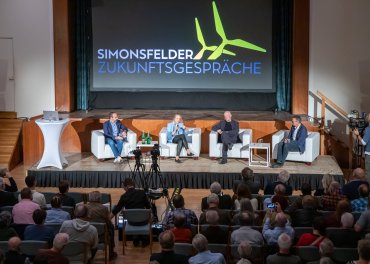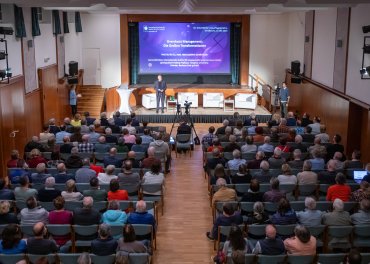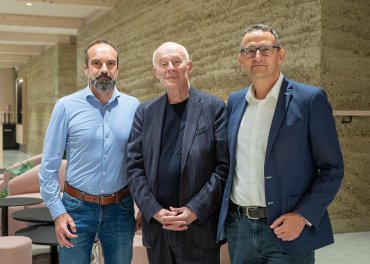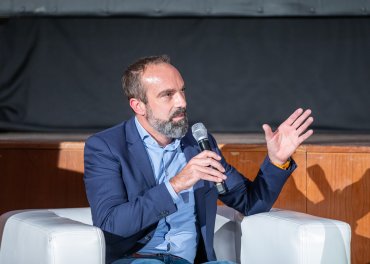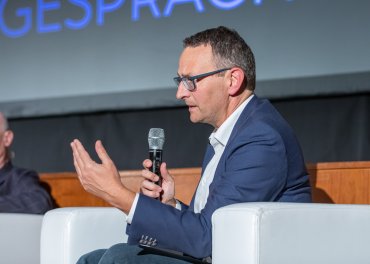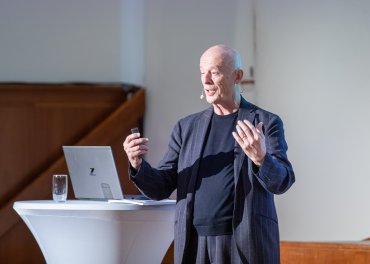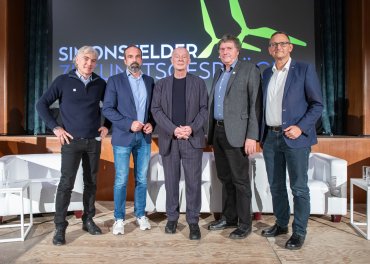‘We can become part of a better
future’: Discussion about the future with climate researcher Hans Joachim Schellnhuber
The 10th Future Talk hosted by Windkraft Simonsfeld on 15 October in Ernstbrunn focused on the ‘great transformation’ towards a sustainable society. Climate researcher Prof. Dr Hans Joachim Schellnhuber called for decisive action, while Windkraft Simonsfeld once again emphasised the social responsibility and opportunities associated with the energy transition.
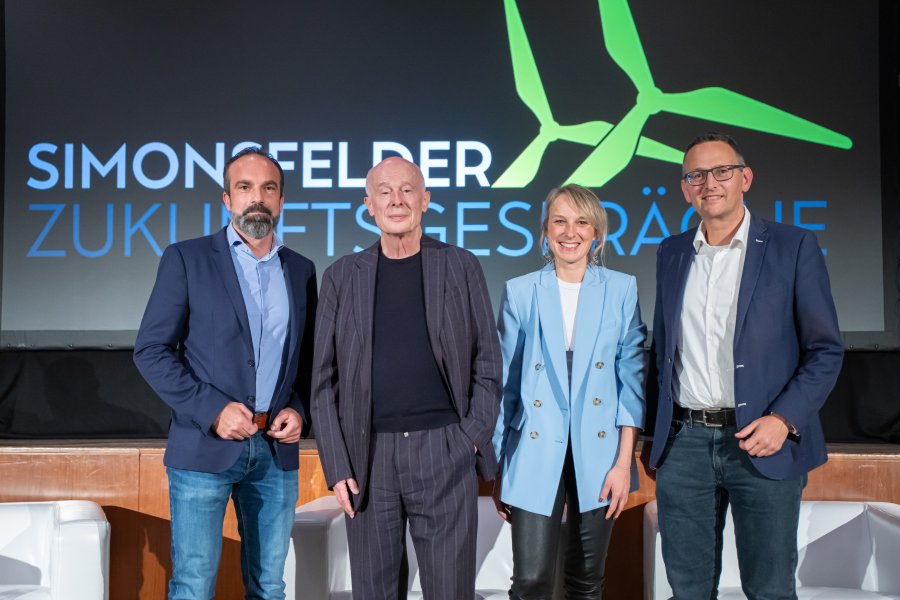
From left to right: Markus Winter (CTO Windkraft Simonsfeld), Prof. Dr. Hans Joachim Schellnhuber, Ursula Pucher (moderator), Alexander Hochauer (CFO Windkraft Simonsfeld)
Under the title ‘Shaping Tomorrow – How Do We Build Our Future?’, Windkraft Simonsfeld hosted its 10th Future Forum in Ernstbrunn on 15 October. Around 300 guests attended, filling the hall to capacity. The focus was on how climate protection, building culture and social change must interact to ensure a sustainable, independent future. As keynote speaker, Prof. Hans Joachim Schellnhuber, Director General of the International Institute for Applied Systems Analysis (IIASA) and one of the world's most renowned climate researchers, provided impressive insights into the ‘Great Transformation’ and highlighted the consequences that inaction on climate protection will have for our society.
Nature can exist without us, but we humans cannot exist without nature. If we continue to wait and see when it comes to climate protection, we will exceed tipping points and trigger dangerous developments that cannot be reversed. The great transformation of the 21st century must be the transition from a linear, divisive petro-economy to an intelligent, inclusive and circular bioeconomy. It will make our lives better, more beautiful and more enjoyable – but above all, it is essential for our survival. To achieve this, we need an energy and materials transition. Around 40 per cent of global greenhouse gas emissions are caused by the construction, operation and demolition of buildings – which is why we need to completely rethink the way we build. This is a crucial aspect of change, and I consider it a privilege that we can be an active part of this transformation. The new headquarters of Windkraft Simonsfeld is an exemplary example of this; it is a total work of art that shows how beautiful the combined material and energy transition can be for climate healing."
Social responsibility as part of the company's DNA
The subsequent panel discussion with Markus Winter and Alexander Hochauer, the two directors of Windkraft Simonsfeld, focused on the role of companies in social change. Markus Winter emphasised that, from the very beginning, Windkraft Simonsfeld has been about more than just energy production: "We see it as our mission to raise awareness and take responsibility. The Future Talks are our contribution to combining knowledge, attitude and action. We only have this one planet, and we must take care of it. Only when we have the right information can we act correctly together.‘ At the same time, Markus Winter pointed out the need for decisive expansion of the infrastructure: ’We must use our existing opportunities, combine every wind turbine with photovoltaics and create an independent, sustainable energy system."
Energy transition as an economic opportunity
Alexander Hochauer concluded by highlighting the economic dimension of the climate crisis and emphasising the need for long-term investment in a stable energy future. According to Hochauer, the energy transition is ‘not a cost factor, but the basis of a modern economy’. Those who invest in renewable energies today will secure prosperity and employment tomorrow and face fewer climate risks in the long term. In addition to the opportunities for regional value creation and independence from fossil fuel imports, Hochauer also pointed out the importance of efficiency and systems thinking: "Sustainability means not only generating more renewable energy, but also using existing resources responsibly and wisely. Above all, this requires stable and fair framework conditions and cooperation between politics, business and society.
Here you can find the video of Prof. Schellnhuber's keynote speech:
